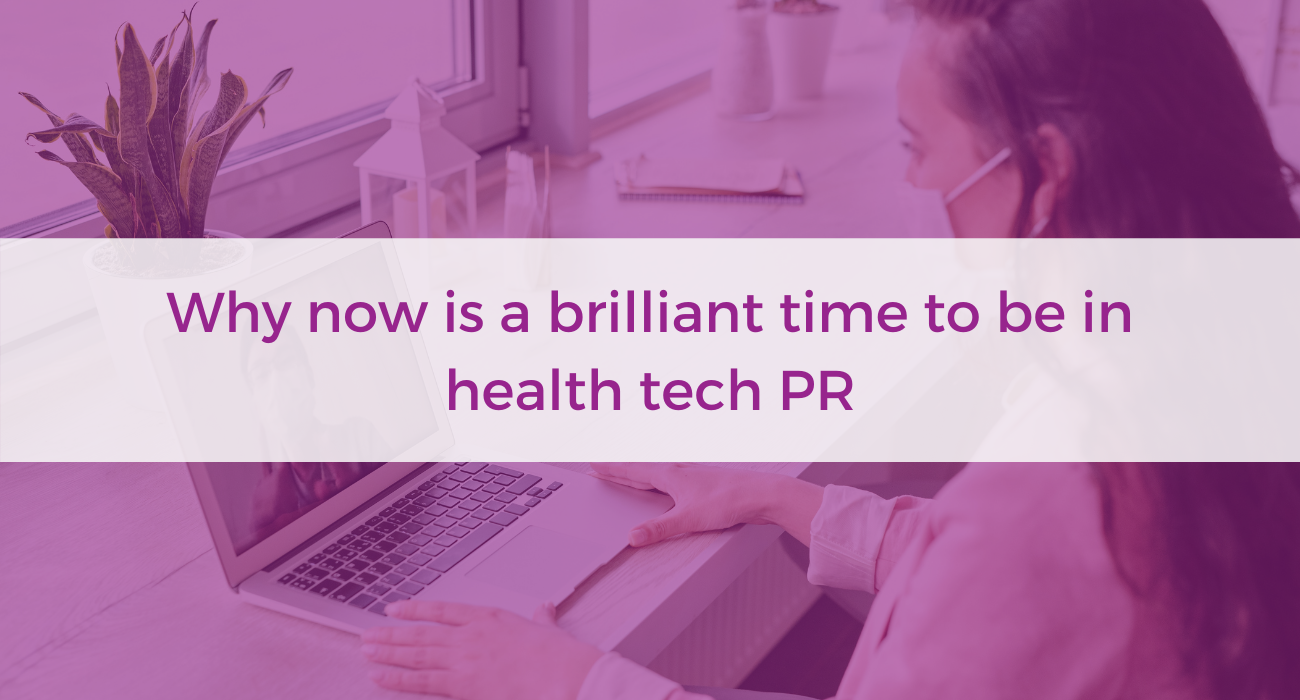
Why now is a brilliant time to be in health tech PR
I’ve always loved working in health tech PR. Over the years, I’ve had the chance to work with so many inspiring people; a significant number of who have been frontline workers themselves and have taken a change of career because they firmly believe that technology can develop and improve health and care processes for the better.
This has never been more relevant than at these very challenging times, and I am in awe of the work that our clients have achieved in the last twelve months. The list is inspiring at both a professional and personal level, including:
- Those on client teams who have gone back to volunteering as frontline workers within their local NHS trusts
- Those who have developed new remote monitoring technologies to help protect the vulnerable
- Those who have sourced their own way of keeping carers safe when government testing kits were in short supply
- Those who have been able to harness innovation to continue to keep essential services, such as cancer diagnoses, running
Existing Hurdles
Yes, the NHS still faces significant challenges, with acute care having to address the backlog of postponed and cancelled services, whilst improving the management of its current bed estate. Additionally, there is an ever-greater emphasis on collaboration and joined-up care within the primary and community setting, including GPs, community and specialist nurses and pharmacy.
Health Tech Evolution
However, the lessons learned during 2020 have shown that change is possible. They have also given rise to a general consensus amongst NHS staff that to return to the “old” ways of doing things is unwelcome. This includes empowerment: both for patients to have better access to education and tools that will help them manage their own condition, and the empowerment of frontline staff to make a difference.
This change is echoed in the vision of the NHS Long Term Plan, where as of April 2021, all parts of England will be served by an Integrated Care System, whereby the decisions about how healthcare services are arranged should be made as closely as possible to those who use them. How this will impact patient pathways on the ground at a local level is yet to play out, but one thing is certain: the role that technology can play in making healthcare more efficient; more accessible; and more equitable has never been greater than it is today.
This is why now is a great time to be in health tech PR. If you are a business innovating new solutions in this space and looking for PR assistance, please do get in touch at prworks@neopr.co.uk.




